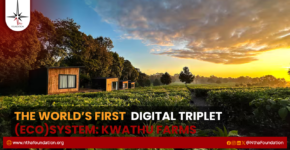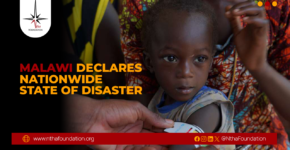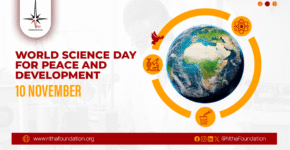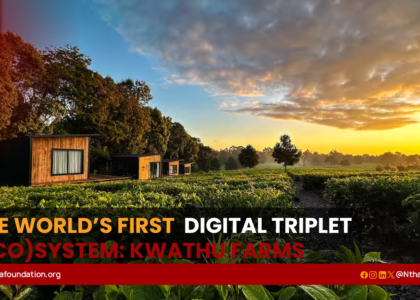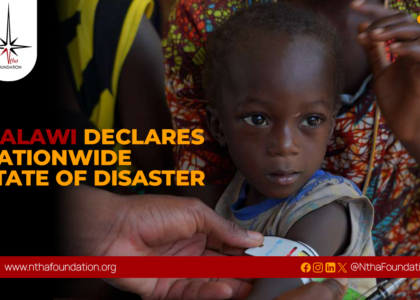At the perimeters of the 80th United Nations General Assembly, the United Nations Capital Development Fund (UNCDF) and the Digital Frontiers Institute (DFI) hosted a high-level conversation bringing together women leaders shaping the future of digital finance.
The webinar — Scaling Impact Through Women in Digital Financial Services: Policy, Regulation, and Innovation in Action — was a celebration of women’s leadership, gender-intentional policy design, and the transformative power of collaboration in building inclusive financial systems.
Among the panelists was Nthanda Manduwi, founder of Ntha Foundation, Kwathu Kollective, Bien Corporation, and Q2 Corporation, who shared powerful reflections on digital transformation, policy, gender, and the future of work in Africa.
Watch a Recap of the Webinar:
or Have a listen:
Building Digital Ecosystems: From a Blog to a Movement
Nthanda’s journey in the digital space began in 2013 as a blogger — a storyteller eager to contribute to Africa’s growing digital landscape. What started as a personal project quickly evolved into a mission. When young people began asking how they too could participate, Nthanda founded the Ntha Foundation, initially aiming to train just 30 young people.
The timing was pivotal. The World Bank’s $72 million Digital Malawi Project had just been launched, with $2 million allocated to digital skills and entrepreneurship training through innovation hubs. At the time, Malawi had only five such hubs. Nthanda’s initiative became the first created from the ground up under the project, positioning her organization as a key player in Malawi’s digital transformation agenda.
Since then, her work has expanded dramatically:
- 10,000+ young people trained in long-form digital and entrepreneurship programs
- Over 500,000 reached through workshops and outreach initiatives across 20 countries
- Innovation hubs established in Malawi, serving as launchpads for youth participation in the digital economy
Representation has been central to this work. Remarkably, 75% of applicants to her hub have been women — a powerful demonstration that women are more likely to participate when they see themselves reflected in leadership.
Policy in Africa: From Paper to Practice
Drawing on her experience with the UNDP Independent Evaluation Office, where she contributed to the Independent Country Programme Evaluation for Malawi, Nthanda shared a sobering reality: Malawi — like many African nations — is policy rich but implementation poor.
“We are excellent at creating policy documents,” she explained. “But the challenge is translating those policies into action.”
The solution, she argued, lies in empowering young Africans not as passive beneficiaries but as doers and creators. She contrasted Africa’s reliance on donor funding with economies like the United States, where industries build cities — from Redmond’s tech ecosystem powered by Microsoft to Michigan’s automotive industry led by Ford.
For Africa, policies must evolve beyond donor-driven agendas and instead enable production, innovation, and entrepreneurship. Governments should not just legislate — they should cultivate the conditions for young people to innovate and build.
Rethinking Gender and Culture: Returning to Our Roots
Gender equality was a central theme of Nthanda’s reflections. While Malawi often celebrates women in leadership — her own mother was the first female inland marine captain in Africa — systemic barriers persist.
Her research on the socio-economic impact of women’s empowerment revealed that while women in senior positions earn more than their male counterparts, they remain concentrated in lower-paying fields like teaching and nursing. This occupational segregation sustains a national wage gap and limits women’s economic influence.
She argued that many restrictive gender norms in Africa are colonial imports, not indigenous realities. “I grew up in a society where chiefs were women and women were celebrated,” she noted. “We must return to our own cultural foundations and redefine empowerment on our terms.”
To achieve that, she advocates for systemic reform — starting with education. Africa’s current education systems were designed to produce clerks for colonial administrations, not innovators. “If we want a transformed continent, we cannot wait until adulthood to build capacity,” she said. “We must begin when children are five, shaping the mindset and skills needed for them to lead by the time they’re thirty.”
The AI Revolution: Risks and Opportunities for Africa
Nthanda also shared candid insights on the future of work, informed by her time at Microsoft. Many senior engineers predict that automation will drastically reshape the job market — to the point where traditional jobs may disappear altogether.
This looming shift, she argued, underscores the urgency of embedding digital and AI literacy into foundational education systems. “Digital skills training must not be a reactionary exercise,” she said. “It should be built into our curriculum from the very beginning.”
While AI is expected to automate many jobs in the Global North, Nthanda believes it offers unprecedented opportunity for Africa. With fewer legacy systems to replace, African countries can leapfrog into the future by using AI to accelerate development, streamline operations, and create entirely new industries. Her own experience illustrates this: projects that once required 30 staff can now be executed more efficiently with just three — thanks to AI-powered tools.
Visibility, Role Models, and the Power of Networks
One recurring theme throughout Nthanda’s reflections was the importance of representation and visibility. Many successful African women are “second-generation powerhouses” — inspired by strong mothers or visible role models.
“When I see Sarah Bond leading Xbox as a Black woman, I believe I can do it too,” she said. “Young people must see themselves reflected in leadership to believe they belong there.”
Building networks of visibility — where innovators are celebrated, stories are amplified, and role models are made visible — is therefore crucial. These networks shape aspirations, fuel ambition, and empower the next generation of African leaders.
Key Takeaways
- Representation drives participation: Women engage more readily when they see themselves in leadership roles.
- Policy must move from paper to practice: Implementation and empowerment are more important than creating new policies.
- Education reform is foundational: To truly transform Africa, change must start early, building a generation of creators, not clerks.
- AI is an opportunity, not a threat: With fewer legacy systems, Africa can leapfrog into the future by integrating AI into its development strategies.
- Visibility shapes ambition: Role models and networks help young Africans imagine themselves as the architects of their future.
A Vision for the Future: From Capability to Autonomy
Across all her reflections — from policy and education to gender and technology — one message was clear: Africa’s future must be built by Africans. Empowering young people to see themselves as creators, innovators, and leaders is not just an aspiration — it is a strategic imperative for the continent’s development.
“Everything we build must point toward an autonomous Africa,” Nthanda concluded. “We have the talent, the creativity, and the ambition. Now we must build the systems — starting with our policies, our education, and our mindset — to make that future possible.”
Beyond Empowerment: Designing Africa’s Future
Following the panel discussion, Nthanda had a 1:1 conversation with Tariro, on Women in Inclusive Finance an Policy Regulation.
Have a listen:
Read More & Listen In
This conversation was just the beginning, as our founder, Nthanda, is writing more books on systems transformation. In her personal blog, she explores these themes — from policy implementation and gender dynamics to education reform and AI — in far greater depth.
👉🏽 Read: What It Will Take to Build an Autonomous Africa — a personal reflection on how Africa can move from dependency to self-determination.
🎧 Watch: Scaling Impact Through Women in DFS Webinar — hear the full discussion and insights from all speakers.
Work With Us
Want to partner on or fund one of our programs / initiatives? We are always open to collaborations and partnerships. Contact our Founder; Ms. Nthanda Manduwi via contact@nthafoundation.org, or give us a call(direct or WhatsApp) on +265991850730.
To keep up with the work of the Ntha Foundation, our hubs under the Kwathu Kollective, our initiatives, and our projects, follow us on social media:
NTHA FOUNDATION SOCIAL MEDIA
KWATHU KOLLECTIVE SOCIAL MEDIA




